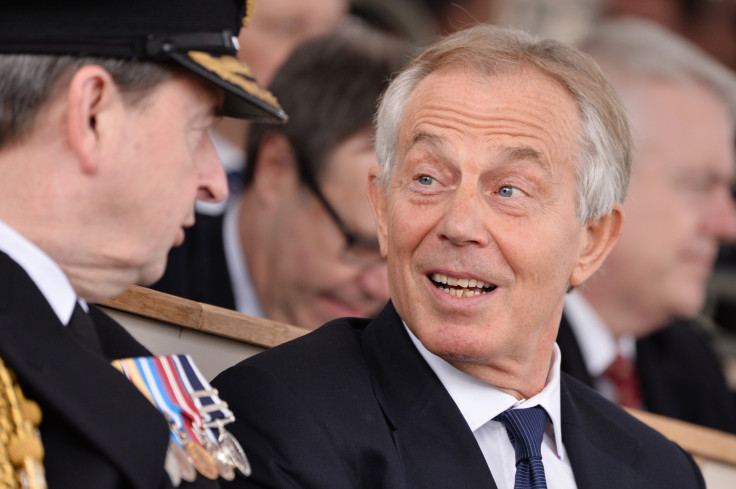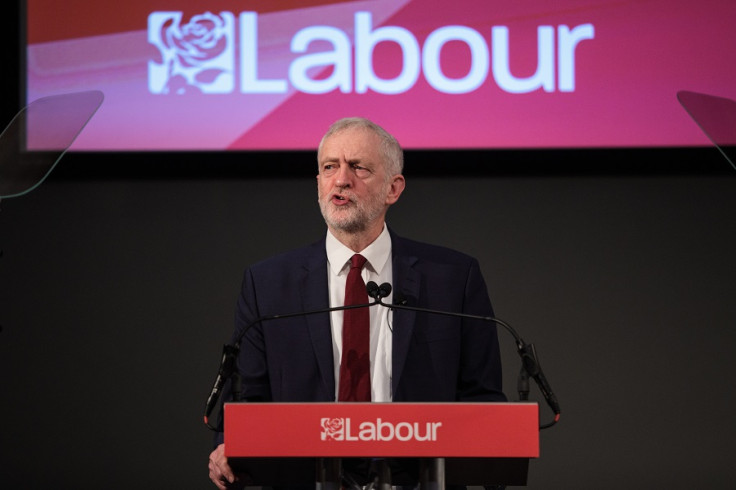Tony Blair says EURef 2 'possible', New Labour was clueless over immigration numbers
KEY POINTS
- Tony Blair said new referendum possible, if desire for Brexit changes during talks.
- Former PM founded Institute for Global Change as think-tank for centre-ground politics.
- Speaking on to Andrew Marr, Blair denied New Labour responsible for populist swing.
Tony Blair wants a second referendum to see if the British people change their mind on European Union membership during Brexit negotiations. The former Labour prime minister said even though the country voted to leave the EU, Britons could regret their decision if there was more pain than gain.
Speaking on The Andrew Marr Show, Blair said it was "possible, no higher than that" there would be a second referendum. "There's been a referendum, that is the will of the people. If that will does not change we will go ahead and do Brexit," Blair said.
"But here's the issue. If you analyse immigration from Europe, according to government ministers we want to keep the majority of those people coming in from Europe. We want to keep the people who have come here with a job.
"My view very simply [is], I agree at the moment this argument for many people is over, but if as you go down this path the British people realise three things then I think it could change," Blair explained.
"One, that the gain is actually illusory. Two, that the pain is substantial. And three, that the distraction of the government and the country in the meantime is enormous when there are these big real challenges on the economy in healthcare, education, immigration that aren't being dealt with."
Blair doubted it was possible to secure similar terms to those offered by the single market or the customs union and said negotiations had "unparalleled complexity". He predicted Brexit would "de-liberalise over 40 years of complex trading arrangements".

'We didn't know immigration numbers'
During the interview, Blair said it was wrong to blame New Labour for mass immigration but admitted his government did not keep count on the number of migrants entering the country.
In 1997, the year Labour came to power, net migration to the UK was 48,000 and soared to 273,000 by the time Blair resigned 10 years later. It reached a record high in 2015 when net migration reached 332,000.
"No, we didn't know the numbers," he said, before laying the blame at his predecessors' doors. "But by the way, it is very important to realise two things. First of all when these countries joined the European Union – and it was very important for us that they did join the European Union, important for our security, important for our economy – there was freedom of movement of people immediately.
"We could have delayed for four years their ability to come here and work. We didn't, that's true, the economy was in a completely different position in 2004. But a majority of EU immigration came post-2008 and one of the tragedies of Brexit is that we're now in a situation where we think this enlargement of the European Union, rather like the single market now, was some sort of error. It was actually a bi-partisan policy of both governments that has done great benefit to this country overall."
Since leaving public office in 2007, the 63-year-old has made millions advising companies including the American investment bank JP Morgan and the Kazakhstan government. Last year he shut down Tony Blair Associates with reserves of almost £9m ($11.16m) being donated to charities but has returned to the political fray with the Institute for Global Change, a think-tank he hopes can galvanise the centre-ground in the face of rising populism.
He said the institute would arm politicians with strategies for "pushing back against the populism of leftist and rightist" and described the centre-ground as the place "where you protect people against the risks and dangers of globalisation but allow them to access the benefits."
Labour position on Brexit 'not difficult'

Labour leader Jeremy Corbyn whipped his MPs to vote in favour of triggering Article 50, but Tony Blair believes the role of the party is to represent those whose mind could change.
"I think the Labour party should have a very simple position on Brexit and I really don't think it is difficult at all," he said.
"I think what the Labour party should say is 'We believed in Remain, we still think the best thing is for Britain to stay part of the European Union, we acknowledge the people have voted against that, we acknowledge therefore that the government has a mandate to negotiate Brexit, but we are going to hold them to the test that they have set and if they do not pass that test then we are going to retain the right to represent the people of this country should their will change."
© Copyright IBTimes 2025. All rights reserved.






















